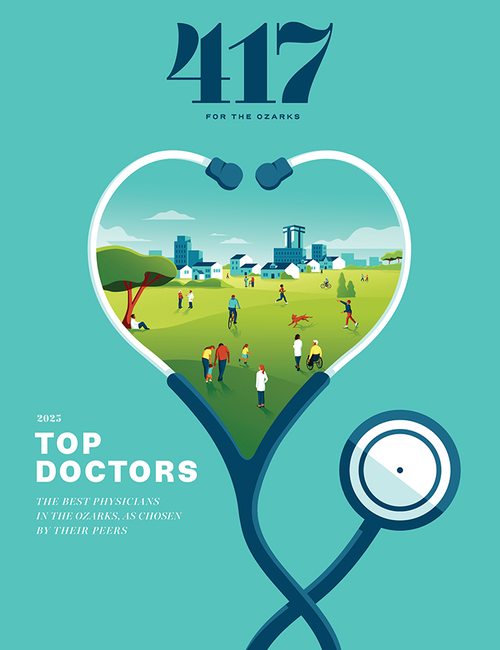Top 5 Takeaways: Home Interrupted Virtual Session
For the third session of 417 Magazine and Burrell Behavioral Health’s Life Interrupted series, Home Interrupted, the Bades and Davis families joined us to speak on behalf of their shifted home life situations amidst the COVID-19 pandemic.
By Burrell Behavioral Health
May 2020
For the third session of 417 Magazine and Burrell Behavioral Health's Life Interrupted series, Home Interrupted, the Bades and Davis families joined us to speak on behalf of their shifted home life situations amidst the COVID-19 pandemic. While Shawna and C.J. Davis juggle life with twin 18-year-old boys, Josh and Melissa Bade navigate new territory with their three small children—each family dealing with the unique challenges that come with disrupted schedules and their children’s ages. Burrell Behavioral Health’s Dr. Shelly Farnan provided some insight into what families may be feeling and experiencing during this unprecedented time.
Top Takeaways
1. Emotions are connected to our overall health
Feeling is as innate to us as breathing and thinking—we do it without prompt, and often subconsciously. Our feelings are influenced by the world around us, and are directly connected to our mental and physical health. Because of this, different individuals may experience different feelings as a result of their environments. This is important to remember as we navigate COVID-19 and experience emotions that may or may not relate to those of our peers.
2. It's normal to experience fluctuating emotions
At the beginning of the pandemic, we started out in crisis mode. Our focus was likely on survival, and our brains were filled with adrenaline and cortisol. Attention and energy were high because there were lives at stake. However, adrenaline runs out—which is when exhaustion can set in. That, combined with uncertainty about re-entering society, can cause feelings of anxiety.
Throughout these circumstances, it’s important to give ourselves grace, understanding that we’re not always going to be at our best. Shawna Davis echoed this saying, “If the only thing I accomplish is quality time, that has to be a win right now.”
3. We can model healthy self-regulation for our children
Whether they are pre-verbal or older teenagers, children can feel their parents’ emotional energy. While it may be a parent’s first inclination to try and hide negative emotions, saying things like “everything will be ok,” this is not beneficial to anyone. Instead, we should model good emotional regulation by being honest and starting open conversations with our kids. This may look different for each family, depending on communication style and age of children, but it is a healthy practice for all.
4. Parents should lead with teamwork
Dr. Farnan reminds parents and partners that communication between two adults in the household is vital. “We lead our families in the way in which we communicate,” she says. A common misconception that leads to poor outcomes, is “assuming that parenting is 50-50, because this is likely not the case most days.” Dr. Farnan suggests daily “check-ins” to assess how much effort each partner or family member has to give daily, as this can help couples navigate tough situations while giving each other grace.
5. Take the good with you
While decisions and regulations are hard, both the Davis and Bade families expressed their gratitude for simple realizations and experiences—like spending more time outdoors, experiencing their children’s education or simply having more time for one another. In fact, they anticipate the loss of their newfound time together to bring about its own grieving process. As a result, both families are looking forward to creating intentional time to slow down together and remember the lessons learned as re-entry begins.
Resources
Burrell Behavioral Health
Be Well Community:
Weekdays daily from 12:45–1:15 p.m. on Facebook live
Emotion management resources
"Permission to feel" is designed to help adults experience their emotions and move through them.
Resources for children
"The Little Gnome Who Had to Stay Home" and "The Great Pause" are designed to help children work through grief and the COVID-19 pandemic.








